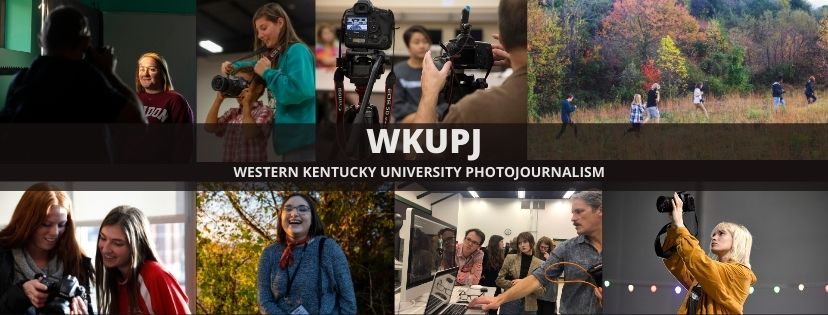The Visual Journalism and Photography Program at WKU has several scholarship opportunities for majors at every class level. The following internal scholarship materials are due at the VJP Program Coordinator’s office via google forms in early April of each year. Specific deadline dates are sent via email to all enrolled students. The award is announced by the end of April of each year. The awards will be distributed the following academic fall and spring semesters per each individual distribution requirements.
Students must go to WKU TopDollar Scholarship Source to start the scholarship acceptance process by February 1 of each year to be eligible for the award. You can sign in to the form here. If you have not done this, you can still apply for the scholarships, but you should do this as well as son as possible.
NOTE: The number and award amount of scholarships are for general information purposes only and should not be considered a guarantee of what you will receive if selected. Actual award amounts vary based on students’ individual eligibility, funds available, and other factors which determine the amount of the actual award.
George & Francis Tames Scholarship Fund
Value: Approximately $9,000 [Varies] split between awardees. [Awardees varies yearly]
Eligibility: Must be accepted in the photojournalism sequence
This scholarship was established by a generous endowment by George and Frances Tames in 2012 to help support the continuing education of a WKU student majoring in the field of photojournalism. The award is looking for students that possess, in the opinion of the Photojournalism Program faculty, personal qualities which produce leaders and merit the honor of this award. Financial need is a consideration but not a determining factor.
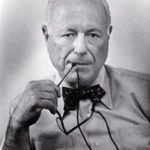
George Tames 1919 – 1994
Eligible recipients must be a full-time sophomore, junior, or senior that has been admitted to the Photojournalism program within the School of Journalism and Broadcasting in Potter College of Arts and Letters. The student must be enrolled in at least one course required in the Photojournalism program at the time the award is received.
George Tames was a native of Washington, D.C. and he spent his life documenting the political scene in and around the country’s Capitol. His career began in 1940 when he began working as a freelance photojournalist gaining access to various Capitol Hill occupants. As his worked improved, so did the level of his assignments.
He has been acknowledged by his peers as the dean of White House Photographers photographing 10 President’s from Franklin Delano Roosevelt to George H.W. Bush. Perhaps his most famous image came from the Oval Office when he captured a pensive John F. Kennedy from behind, silhouetted in the office’s windows.
As explained in an interview late in his life, Tames took the image through the open door of the Oval Office, after Kennedy had thought he had left. Kennedy, was in fact, looking at the New York Times, whom Tames was working for.
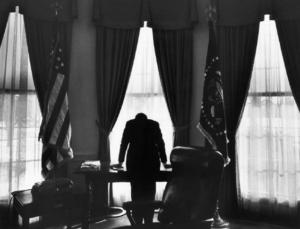
“The Loneliest Job” by George Tames | The New York Times
“When I saw him doing that, I walked in, stood by his rocking chair, and then I looked down and framed him between the two windows, and I shot that picture. I only made two exposures on it–we were very conservative with our film. Then I walked out of the room and stood there for a while, then I saw him straighten up. I went in again and I photographed him straight up, for a different shot, from the back, then I walked around to the side and photographed him profile, right and left. He had a copy of the New York Times, he was reading the editorial page. He looked over and he saw me. He hadn’t been aware that I took that picture from back, but he saw me when I moved to the side there. He glanced over at me, and he said: “I wonder where Mr. Krock gets all the crap he puts in this horseshit column of his.” Apparently, he was much upset about Mr. Krock’s column that day. So that was the occasion of that picture.
Upon Tames’ death, his negatives were donated to the Photojournalism Foundation which in-turn, passed them along to the University of Texas’ Briscoe Center for American History. His archive is available for research purposes. His book, Eye on Washington: The President’s Who’ve Known Me, was published in 1990 and copies are still available.
Michael L. Morse Endowment Fund
Value: Approximately $1,900 [Varies]
Eligibility: Must be accepted in the photojournalism sequence
This scholarship was established by a generous endowment by Michael and Louise Morse in 2012 to help support the continuing education of a WKU student majoring in the field of photojournalism. The award is looking for students that possess, in the opinion of the Photojournalism Program faculty, personal qualities which produce leaders and merit the honor of this award. Financial need is a consideration but not a determining factor.
Eligible recipients must be a full-time sophomore, junior, or senior that has been admitted to the Photojournalism program within the School of Journalism and Broadcasting in Potter College of Arts and Letters. The student must be enrolled in at least one course required in the Photojournalism program at the time the award is received.
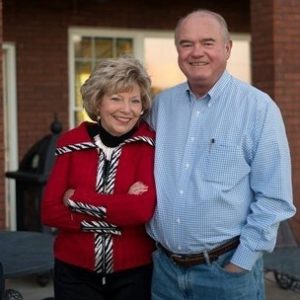
Mike and Louise Morse
Michael (Mike) Lynn Morse was born June 22, 1944. Mr. Morse began his life on the Hill when he studied Mass Communication as an undergrad and worked as a member of the Talisman student publications staff. In 1972, he graduated with a Bachelor of Science degree.
His time at WKU continued when he became a professor of Journalism and Broadcasting, specializing in Photojournalism. While at WKU, Mr. Morse made a major impact when he and former WKU professor David Sutherland began the Mountain Workshops, WKU’s annual photojournalism workshops that teach the craft of storytelling through a variety of media. In 1976, Mr. Morse and Mr. Sutherland took a dozen photojournalism students into eastern Kentucky and Tennessee to document the 11 remaining one-room schools there. Since that time, the Mountain Workshops have visually documented at least 30 communities in Kentucky and north-central Tennessee, and hundreds of photojournalists have had the opportunity to shoot thousands of images showing the communities and people of places such as Burkesville, Hopkinsville, and Somerset in Kentucky and Celina and Lafayette in Tennessee.
In addition to teaching and mentoring, Mr. Morse is also an author of several books published during his career that capture Kentucky history through photographs. Mike is a recipient of the 2014 Volunteer of the Year Summit Award by the WKU Alumni Association, a Herald Award Winner, and husband to Mrs. Norma Louise Morse.
After many years teaching and serving as Director of the Photojournalism Program, Mr. Morse retired from WKU. To forever support and encourage young photojournalists, Mike established the Michael L. Morse Endowment Fund. Through this fund, Mr. Morse’s positive impact in the lives of WKU students will continue in perpetuity.
Larry Powell Endowment Fund
Value: Approximately $1,700 [Varies]
Eligibility: Must be accepted in the photojournalism sequence
This scholarship was established by a generous endowment by Larry and Betty Powell in 2012 to help support the continuing education of a WKU student majoring in the field of photojournalism. The award is looking for students that possess, in the opinion of the Photojournalism Program faculty, personal qualities which produce leaders and merit the honor of this award. Financial need is a consideration but not a determining factor.
Eligible recipients must be a full-time sophomore, junior, or senior that has been admitted to the Photojournalism program within the School of Journalism and Broadcasting in Potter College of Arts and Letters. The student must be enrolled in at least one course required in the Photojournalism program at the time the award is received.
The following is an excerpt from a story published in the College Heights Herald.
Although Larry Powell was in great pain due to a head injury he had obtained during his time in the Vietnam War, he still kept those around him at the highest priority. So when a water line in his farmhouse backyard needed fixing, he wanted to to repair it for his family.
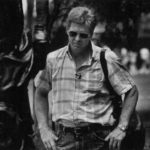
Larry Powell 1946 – 2016
Powell had spent 15 years in and out of hospitals and the injury had become more severe causing him to go to Duke Hospital. Before he left, he went out to dig and repair the water line on equipment that jarred his head and back further.
“He did it because that’s the type of person he was,” his wife Betty Powell said. “He wouldn’t let us go without water.”
Larry Powell began volunteering at WKU. He never received a paycheck or had a professor’s status. However, his friends and colleagues said Powell was a key member of the photojournalism program.
While at WKU, Larry enrolled in the basic photography class in 1985, taught by Dave LaBelle, who is now director of the photojournalism program at Kent State University.
LaBelle said in no time, he could tell that Larry was interested in photography. Within six months, Larry began volunteering as a lab manager. He stayed in this position for 10 years.
“Photojournalism and WKU may have saved his life,” LaBelle said. “He found a purpose in the program and found a place to put his energy.”
Mike Morse, former director of the photojournalism program, said Larry Powell mentored many students in the same way a teacher would. Morse said Larry was a blessing to the photojournalism program because he arrived at the same time the program was being built.
Morse said the program didn’t start with a lot of resources, so they built the program on heart rather than money. Because the program was in its infancy, students were encouraged to take a lot of ownership and were not only required to be learners but contributors. Morse said Larry Powell embodied these ideas and used them to help make the program successful.
As a lab manager, Larry Powell influenced and interacted with several photojournalism students. One student, Ken Harper, who is now a professor of multimedia photojournalism and design at Syracuse University, initially met Powell while touring WKU and then became one of his lab assistants.
Harper said Larry was a father figure to many students in the lab and was the first person people would go to for advice. Harper said he had a deep understanding of the world and often offered students invaluable lessons about that understanding.
With all the work Larry Powell did for WKU, including serving on a Foundation board with Morse, he was never an official employee. Harper said Larry was a man of service and believed in helping others even when it didn’t benefit himself. He said the camaraderie inside the program was more important to Larry and he was reimbursed through the students, energy and experiences.
“He loved his job, and we loved him for having it,” Harper said.
Throughout his time at WKU, Larry Powell also helped with the Mountain Workshops while working on individual projects. In 1995, Larry published a book entitled Hunger of the Heart: Communion at the Wall.
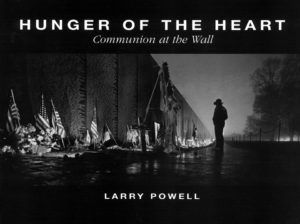
Larry Powell’s book
The book features photographs taken at the Vietnam Memorial Wall where Betty Powell said he met a lot of people and became a part of the Vietnam Veterans Memorial Fund. Larry visited the wall every Memorial Day and Veterans Day, later going just on Veterans Day.
LaBelle said Larry always wanted to compile a story on the wall, so he encouraged Larry and went with him on the first trip. LaBelle said it was an emotional trip for Larry and he would get upset watching other photographers setting up shots.
Harper said this friendly attitude was something Larry transferred to his students. Harper said he thinks about Larry Powell every day and is reminded of him through a print of Larry’s hanging in his living room. Harper said he considers the impact Larry had on him when he thinks about how to interact with his students.
“Scrappy, no excuses, live life to the fullest because you have the opportunity to do so, that was Larry,” Harper said.
Reporter Rebekah Alvey
Photojournalism 9/11 Scholarship Fund
Value: Approximately $1,100 [Varies]
Eligibility: Photojournalism major seeking funding to assist in project travel
This Scholarship Fund is administered by the College Heights Foundation as an endowed account. This fund was established following the events of September 11, 2001. The award is looking for students that possess, in the opinion of the Photojournalism Program faculty, personal qualities which produce leaders and merit the honor of this award. Financial need is a consideration but not a determining factor.
Eligible recipients must be enrolled as a part-time or full-time student at Western Kentucky University and be a Photojournalism major.
Scholarship is to be granted to the recipient for the purpose of travel expenses for a designated Photojournalism project, judged to be beneficial to the student in attaining comprehension and experiences not otherwise possible.
Although this award is not automatically renewable, recipients may reapply for consideration in future years. Recipient must possess the personal qualities of character, integrity, dependability, industriousness and human compassion which produce leaders and merit the honor of this award. Applicants must complete an online WKU scholarship application prior to the published deadline each year.
If you are interested in adding to this fund to increase opportunities for our photojournalism students, checks of any amount made out to WKU with the memo field containing 9/11 Scholarship Fund can be mailed to: WKU Photojournalism Chair, 1906 College Heights Blvd. #11070, Bowling Green, KY 42101. Or, contact the School of Journalism & Broadcasting office at 270-745-4143.
David Cooper Scholarship
Value: Approximately $500 [Varies] for two awards
Eligibility: Must be seeking photojournalism as a major
This fund provides support for the Photojournalism program including technological support and enhancements, guest lectureships and professional-in-residence programs, alumni and student awards, national and international travel for students and faculty, and student scholarship or other activities or needs deemed appropriate by the Sequence Coordinator of the Photojournalism program and the Director of the School of Journalism and Broadcasting.
The scholarship is often awarded to up-and coming freshman within the photojournalism program.
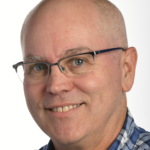
David Cooper
David Cooper has spent his entire professional life in photojournalism. A Kentucky native from Lexington, Cooper started his career as a freelancer and intern for the Herald-Leader after graduating from the University of Kentucky in 1982. He has worked at small, medium and large daily newspapers as a photographer and photo editor. He was the photojournalist-in-residence at WKU during 2000-2001.
After college graduation from UK and a year of graduate study at Ohio University, Cooper worked for the Owensboro, Ky. Messenger-Inquirer beginning in 1985 before moving to the South Bend Tribune in South Bend, Ind. in 1989. Both papers, and Cooper, were recognized by state and national organizations for visual awards during his time there. Cooper, however, counts being the photojournalist-in-residence at WKU as his most challenging and rewarding experience in a career that spanned more than four decades.
After his time at WKU, Cooper was offered a position at USA TODAY as a sports photo editor where he worked for 14 years. Assignments included on-site coverage of nearly a dozen World Series, The Masters golf tournament, the 2006 Winter Olympics in Italy as well as numerous baseball All-Star games. During the past three years, he worked on the news desk before retiring at the beginning of 2019.
Kodak Photojournalism Endowment Scholarship Fund
Value: Approximately $1,100 [Varies]
Eligibility: Must be accepted in the photojournalism sequence
This scholarship was initiated by the Eastman Kodak Company in 1989 as an endowed fund to “recognize the best photography majors (within the WKUPJ program) at a key point in their college career and encourage them to continue in the profession.”
Eligible participants must have declared and be accepted into the WKU photojournalism program at the time of the award decision. The scholarship is awarded only to full-time (minimum of 12 hours) students who have completed at least one-year of college work and have at least one full year of work remaining before graduation at the Bachelor level. The award (which averages approximately $500) is divided equally between the fall and spring semesters and applied towards your tuition. You must maintain a full-time enrollment both semesters to receive the full amount of the award.
Scholarship recipients are selected by the faculty within the photojournalism program and are based only upon excellence. Considerations are given to grade-point average, photo course work, portfolio review, creative and technical ability, initiative, extra-curricular activity experiences, communications ability, leadership ability and faculty recommendations
Lynn DeLaney Saunders Scholarship Fund
Value: Approximately $550 [Varies]
Eligibility: Must be accepted in the photojournalism sequence
This scholarship was established thru the philanthropy of the Scripps Howard Foundation after the untimely car-accident death in 1999 of WKU PJ graduate Lynn Saunders.
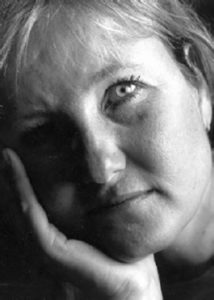
Lynn Delaney Saunders 1953 – 1999
The recipient must be a full-time student at Western Kentucky University and pursuing a degree in photojournalism.
The award (approximately $400) is given (as selected by the WKUPJ faculty) to the student who produces the best photo story in the 12 months preceding the scholarship application deadline. The photo story does not need to be published, but each photo must be accompanied by a caption and a maximum 500-word description of the project.
In a 1999 article published in the Bremerton Sun, where Saunders’ was a photojournalist, colleague and close friend Elena Castañeda wrote:
“It didn’t occur to me that Lynn DeLaney Saunders might die when I first heard about her car accident Thursday morning. Lynn was a fighter. My heart told me that she could make it through anything.
You know Lynn as a Sun photographer. Her pictures captured other people’s joys and heartaches. What you may not know is how Lynn coped with her own life’s struggles. Let me tell you a story about Lynn that will help you understand the depth of this women.”
Castañeda continued to explain how the two of them traveled to Nicaragua covering a story about a local high school mission trip.
“Lynn and I lived like the students, … it was easy for me …. Lynn loved it, too, but traipsing around an undeveloped island was not easy for her.
Lynn lost her sense of balance as a young woman. She had to overcome this loss in part through using her sight – standing upright so she could see where she was stepping. …
Lynn wasn’t one to ask for help, but she needed me to carry cameras one day … as we made it to a secluded part of a river, she began to fall.
Lynn broke into tears after one hard fall. As her friend, my heart broke for her. But I was also a little angry. Why did she insist on a career that posed tremendous obstacles for her? It wasn’t the first time that I feared for her safety.
She dried her tears and picked herself up, as she must have done a thousand times before.
And she said something I will never forget. She told me her tears weren’t shed out of self-pity. Lynn said they were tears for people she knew – loved ones and those she photographed – who would never stand on those rocks and wash their clothes in that river. She was sorry that they would never witness what she was seeing that day.
As the reality of Lynn’s accident and death sink in – it’s still hard for me to believe – I’ll be thinking of Lynn when struggles creep into my own life.
Falling down is OK. Tears are fine, too. But I hope my sense of life’s blessings will overwhelm my troubles, as they always did for Lynn.”
Donations to this scholarship fund may be sent to Lynn Delaney Saunders Memorial Scholarship, c/o The Scripps Howard Foundation, P.O. Box 5380, Cincinnati, OH 45201-5380.
Chester Earl Johnson Scholarship
Value: Approximately $550 [Varies]
Eligibility: Must be seeking photojournalism as a major
The recipient must be enrolled as a full-time student at Western Kentucky University and has declared photojournalism as their major. First preference will be given to a graduate of Bowling Green High School but the award is open to any Kentucky resident who graduated from any Kentucky high school.
Billie P. Hatcher Scholarship
Value: Approximately $500 [Varies]
Eligibility: Photojournalism major (odd years) and Journalism major (even years)
The recipient must be enrolled as a full-time student at Western Kentucky University and majoring in journalism or photojournalism. First preference will be given to residents or graduates from Allen County, Kentucky. Although this award is not automatically renewable, recipients may reapply for consideration in future years. The recipient must possess the personal qualities of character, integrity, dependability, industriousness and human compassion which produce leaders and merit the honor of this award.
Additional outside merit scholarships and awards WKUPJ students tend to obtain:
National Press Photographers Foundation
